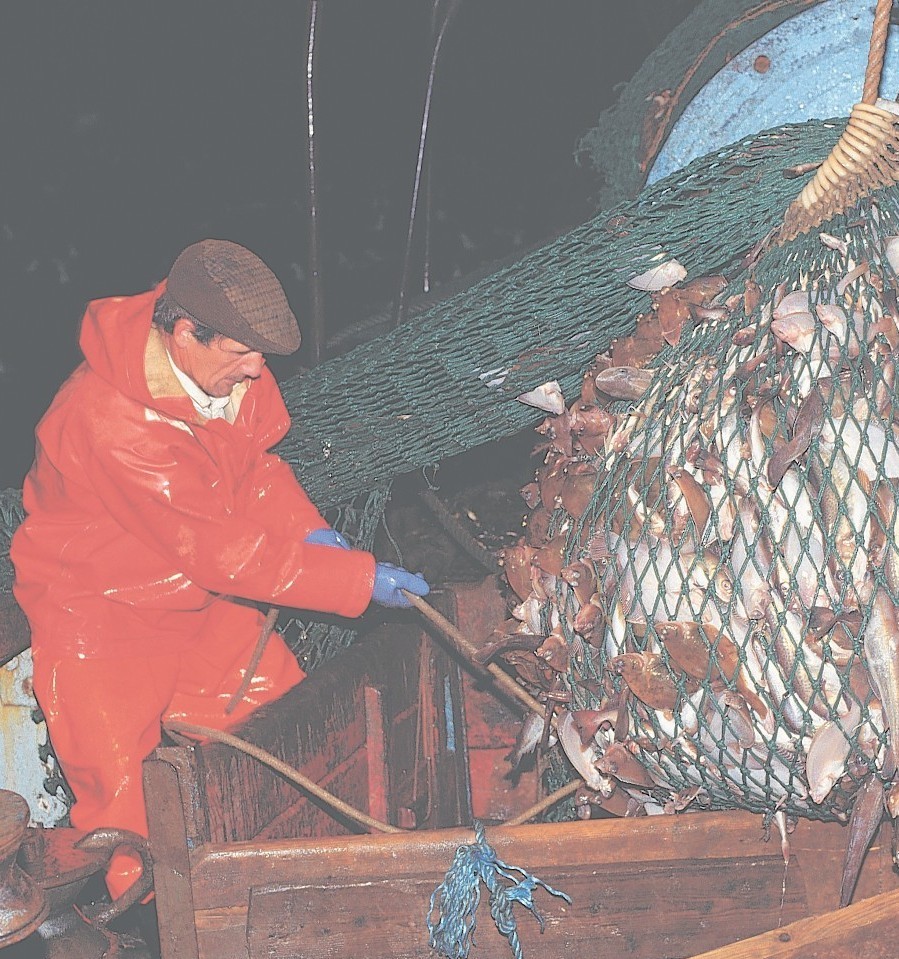A UK Government minister has claimed people in the north-east are more concerned about the impact of the Common Fisheries Policy than they are about independence.
Secretary of State for Wales Stephen Crabb, who has relatives on his mother Jackie’s side in Fraserburgh and Aberdeen, said people regarded the policy – a set of rules for managing fishing fleets and for conserving fish stocks – as a “disaster” and want it reformed.
The Inverness-born Conservative MP said the issue had led to growing Euroscepticism in Scotland and reinforced the need for an in-out referendum on European Union membership in 2017.
Mr Crabb, who is half Scottish and half Welsh, said he rejected the Scottish Government argument that the contest – a Tory general election promise – represented the biggest threat to this country’s place in the EU.
“People feel strongly about the referendum but golly talk to people in the north-east about the common fisheries policy, you get a very strong reaction,” he added.
“It highlights the difficulty Mr Salmond is going to have if, upon independence, he thinks he can just walk easily back into the EU.
“There will be powerful voices inside the EU who do not want an independent Scotland joining and people in Scotland who have pretty strong opinions about that.
“People regard the CFP as a disaster for fishing.
“You should not underestimate the strain of Euroscepticism in Scotland, partly as a result of the CFP.”
Mr Crabb, 41, who grew up in Wales but frequently visited the north-east when he was growing up, said there was a growing desire in Scotland for a change in Britain’s relationship with Europe.
“People recognise the benefits of being in Europe but the terms of membership needs to change,” he added.
“What we want to present to voters in 2017 is to show them how we can win concessions from Europe so we have a relationship that is less intrusive, less burdensome, puts less cost on our businesses and makes them more competitive.
“We want to get an improved relationship to offer to the people of the UK and if we can achieve that, we will be campaigning to stay in hopefully.”
In a wide ranging interview, Mr Crabb, MP for Preseli Pembrokeshire, who has been secretary of state since last month, said there was a “huge affinity” between the Scots and Welsh.
“It is about Celtic solidarity between Scotland and Wales and when you see opinion polls, the vast majority of people do not want Scotland to leave the UK.
“I feel the emotional side of the debate very, very keenly because I have grown up with a strong identity of being half Welsh, half Scottish and feeling very comfortably British.
“So the thought of separation to foreign lands strikes at the very heart of who I am.”
Mr Crabb said he did not think a “yes” vote on September 18 would inspire Welsh nationalism.
“I think it will be met by a wave of enormous disappointment and to some extent dismay on the part of the people of Wales,” he added.
“Welsh separatism is even weaker than in Scotland, there is no great appetite in Wales for independence.”
Mr Crabb said most people supported the idea of more powerful Scottish Parliament and Welsh Assembly in the UK.
The Tory MP said the unionists parties had made strong commitments to taking the devolution process forward and SNP claims that a no vote meant no change amounted to “pretty desperate scaremongering”.
But Mr Crabb said Welsh people would not support the idea of a currency union between an independent Scotland and the rest of the UK.
“Yes, we want Scotland to stay part of the family but if they decide to leave, the option of using the pound, the easy get out that Alex Salmond wants, the strong, stable currency that Sterling provides, is not going to be available,” he added.
“We say this with a heavy heart, there is no sense of wanting to see Scotland punished, but we do not want to see the strength of our currency put at risk by an untested currency union with what would become a separate country.”
Mr Crabb said he did not think Welsh First Minister Carwyn Jones was being “very serious” when he said in June 2012 that Britain’s nuclear-armed submarines would be “more than welcome” in Wales if they left the Faslane base on the Clyde.
He added that there were “practical reasons” why it would not be appropriate to move the fleet to Milford Haven in due to huge oil and gas installations there.
Mr Crabb, who supports the renewable of the nuclear deterrent, said: “I think Trident will be where it is for many, many years to come.
“This summer has taught us that whatever we might have thought about how the cold war threat has changed, the behaviour from Russia presents a challenge to the west.
“Now is absolutely not the time to be showing any sense of weakness and the beginning of a world where we do not have that part of the defence arsenal.”
Mr Crabb criticised pro-independence supporters for trying to secure Yes votes by persuading that funding to the NHS would be cut if Scotland remains in the union.
He said people knew that health had been the responsibility of Holyrood since 1999.
The MP said: “People understand that and can see what Alex Salmond is trying to do.
“The NHS is the thing I think people probably cherish most closely to their hearts and he is trying to press that emotional button in a very crude and clumsy way.
“There is something reprehensible about trying to use sick people to make a political point.”
